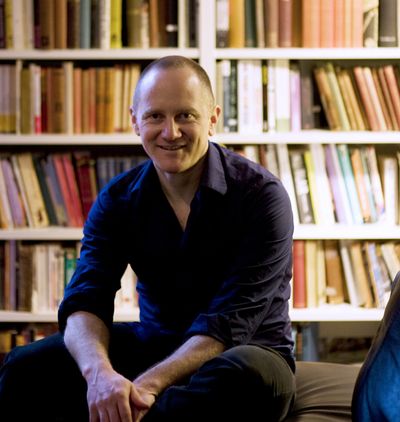‘Little Bee’ characters face moral decisions in immoral world

That includes literature, which makes choosing a book for the Spokane is Reading program tricky. This year’s program will culminate Friday with two events featuring Cleave.
“Little Bee” contains “heavy concepts,” said Spokane library communications manager Eva Silverstone, which has prompted complaints along with praise for the selection. The novel, published in 2009, switches between two narrators. Little Bee is a teenage Nigerian refugee. Sarah is a magazine editor in London. Their initial meeting and its aftermath, set on a Nigerian beach, are brutal.
But the novel’s heart centers on the characters. “This book is very much about people,” Silverstone said.
In a recent interview, Cleave, an ex-journalist who lives in London, said it’s people – those fictional characters – that “Little Bee” readers want to discuss. A transcript of the interview, edited for length:
S-R: Why write a novel about real-life situations? What are the strengths of fiction in illuminating real, current events?
Cleave: In fiction you can tell a story that’s emotionally true, and that’s what I’m trying to get people to engage with – the truth of one’s own conscience when presented with the facts about things that are happening in the world. I think there’s a continuum between stuff which is fiction and stuff which is factual, and I deliberately position my stuff as fiction that’s based in a world that’s recognizably our own. For me, fiction is a way to make to make these big ethical questions that we face in our modern world compelling, exciting.
S-R: Looking back in talks with audiences about “Little Bee,” what do readers want to talk about most?
Cleave: Most people are interested in the choices that characters make, the moral and ethical choices. That suits me fine. For me, personal choices sit in the context of big political situations. The choices we make are individual, whereas politics is about what is collectively right and true. I think that’s where my stuff sits, on the interface between what’s personal and what’s political.
S-R: You spent part of your childhood in West Africa. How did you end up there?
Cleave: We grew up in Cameroon. When I was 6 weeks old, the family moved out there. My father had a job working in a brewery. We moved back to the U.K. when I was 8 years old. The thing I remember as being quite shocking was the move back to the U.K. It was very strange trying to reintegrate into life in London that I’d missed out in the first years of my life.
S-R: Do you think that experience informed Little Bee, as she entered the U.K. and everything was completely foreign?
Cleave: Yeah, definitely. A lot of people have written that the book was influenced by my childhood in West Africa, which I don’t agree with at all. I don’t think there’s anything of my childhood in the novel. But I do think that it was influenced by my move back to London and that sense of being an alien, and not understanding how things worked.
S-R: Why does Little Bee abandon her own dialect and learn the Queen’s English to direct her story to a Western audience?
Cleave: Language – the way people express themselves – is still an area in which we make snap decisions about people. Little Bee very quickly realizes that in order to be taken seriously and in order to have some say over her own destiny she needs to learn to speak in a very particular way, and she finds that to be not more expressive than her own idiom, but certainly more persuasive.